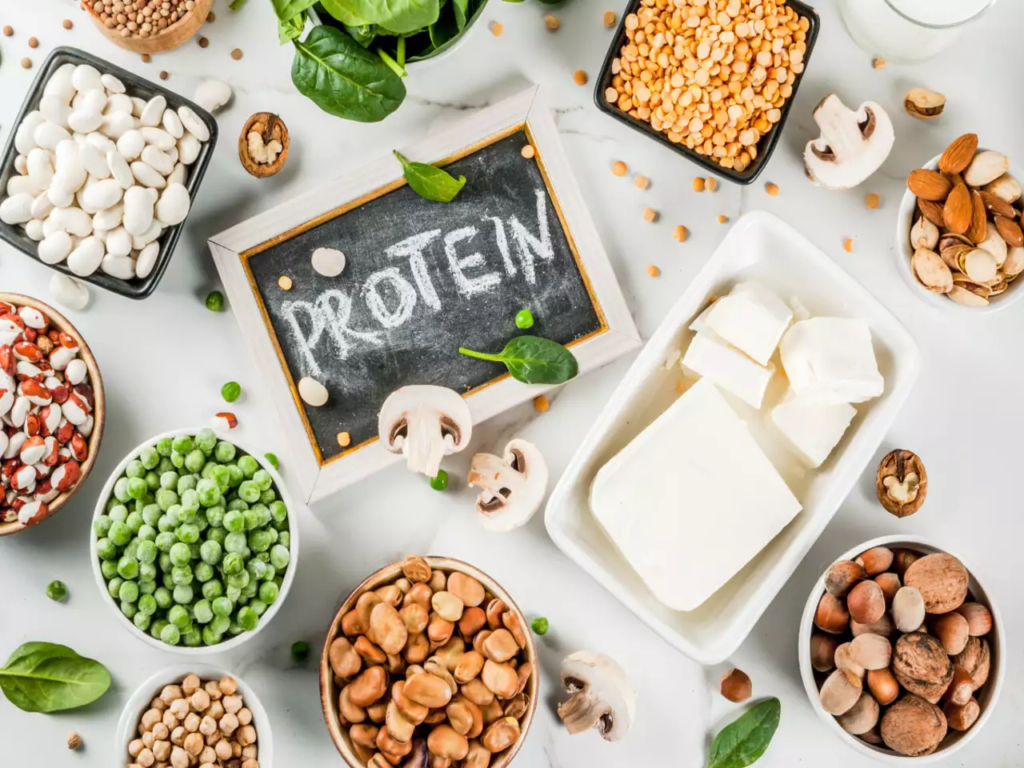Health Benefits Of Plant Protein: A Sustainable Alternative For All

A plant-based diet focuses on foods originating from plants, including fruits, vegetables, grains, pulses, legumes, nuts, and soy products. These foods are rich in fiber, vitamins (such as folate, vitamin C), and minerals (like potassium), all of which are essential for overall health. Plant proteins have been gaining popularity for their numerous health benefits.
Nutritionally Dense and Gastrointestinal Health
Plant foods rich in proteins are also abundant in other essential nutrients, such as fiber, vitamin B9, vitamin E, magnesium, calcium, and potassium, as well as phytochemicals. These nutrients play vital roles in supporting overall health. Additionally, the high fiber content in plant-based proteins promotes good gut health, improving digestion, and regular bowel movements. It also fosters a healthy gut microbiome, reducing the risk of gastrointestinal disorders.
Reduces Risk of Chronic Diseases and Cardiac Health

Consuming plant proteins has been linked to a lower risk of chronic diseases, including diabetes, breast, colorectal, and prostate cancer. Lentils & legumes, nuts, and whole grains are some plant protein sources that improve metabolism and metabolic markers, leading to better long-term health outcomes. Moreover, plant-based foods are naturally cholesterol-free and low in saturated fats, supporting optimal cardiac health and reducing the chances of cardiovascular diseases.
Diabetes Regulation and Kidney Health
Research suggests that plant proteins can be beneficial for people with diabetes. The combination of high fiber and proteins promotes satiety and controls blood sugar levels by facilitating the slow release of glucose into the system. Additionally, consumption of plant proteins has been associated with a lower risk of developing kidney disease and kidney stones compared to a diet rich in animal foods.
Weight Management and Environmental Impact
Plant-based protein sources are naturally low in calories and saturated fats, making them ideal for weight management. Their high fiber content also contributes to a sense of fullness, aiding in appetite control. Furthermore, plant proteins have a lower environmental footprint compared to animal proteins, making them more sustainable and eco-friendly.
Suitability of Plant-Based Food for All
While a plant-based diet can offer various health benefits and may be appropriate for many individuals, it is essential to consider individual nutritional needs. Plant-based foods like fruits, vegetables, whole grains, legumes, and plant-based proteins can provide a variety of nutrients, vitamins, minerals, and fiber suitable for people of different age groups. However, some individuals, such as pregnant or lactating women, athletes, or those with specific medical conditions, may require additional nutritional considerations. Consulting with a physician or registered dietitian is advised to ensure their nutritional needs are met appropriately.
Plant-Based Food as a Sustainable Alternative
Plant-based foods serve as a sustainable and environmentally-friendly alternative to conventional products, benefiting both the environment and human health. As concerns about non-vegetarian diets and their impacts on health increase, plant-based products are becoming more popular. They are lower in saturated fats and cholesterol, while higher in fiber and essential nutrients, making them a healthier option for individuals. By incorporating more plant-based foods into diets, individuals can reduce their environmental impact and improve overall health and well-being.
Transitioning to a Plant-Based Diet
Making small changes to create a healthy habit is an effective way to transition to a more plant-based diet. This change can help safeguard both the environment and individuals’ health. Adopting a clean and green diet benefits the environment and nourishes our bodies, minds, and souls, promoting positivity and vitality for a better life.
The Hindustan Herald Is Your Source For The Latest In Business, Entertainment, Lifestyle, Breaking News, And Other News. Please Follow Us On Facebook, Instagram, Twitter, And LinkedIn To Receive Instantaneous Updates. Also Don’t Forget To Subscribe Our Telegram Channel @hindustanherald









